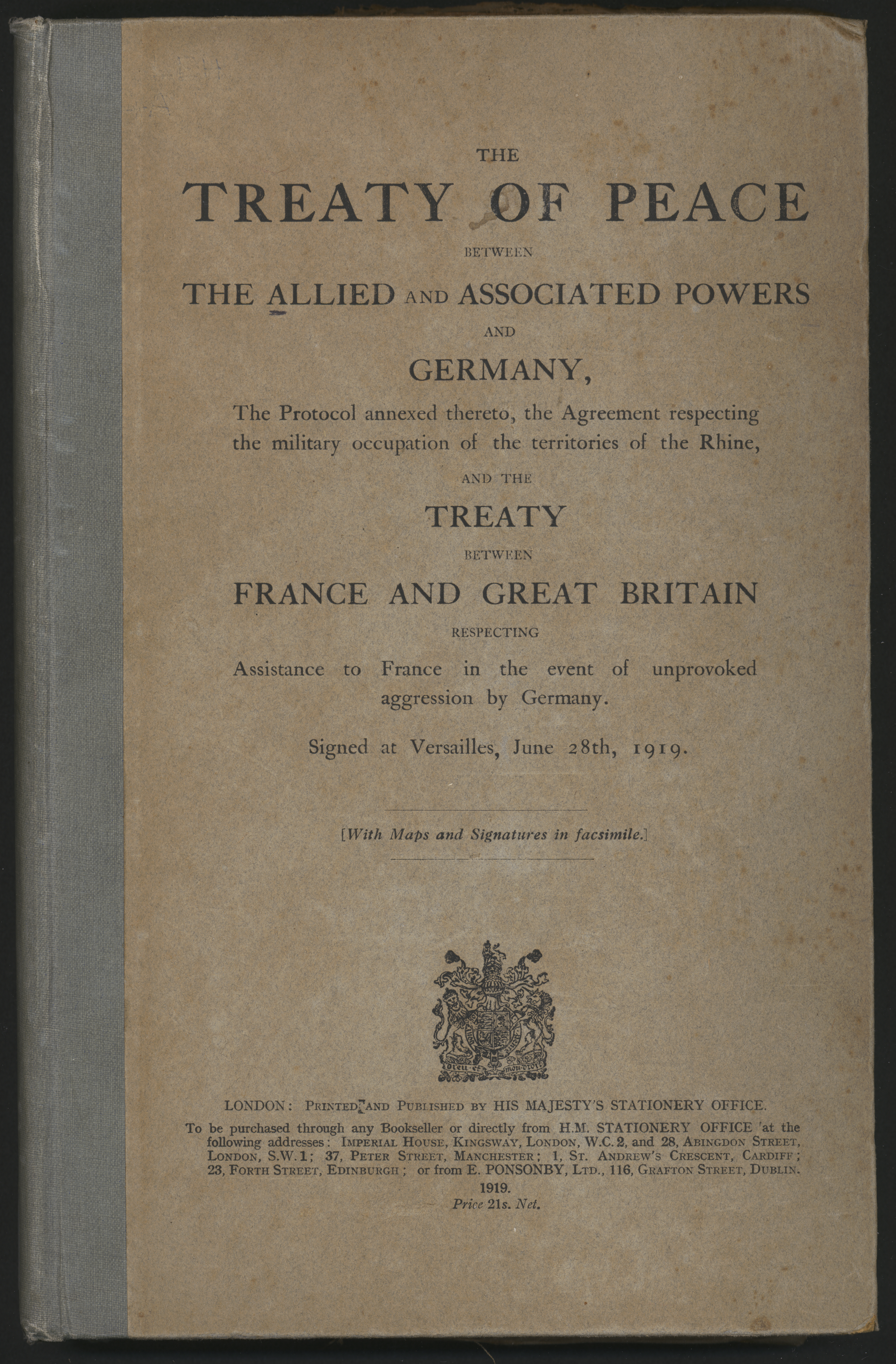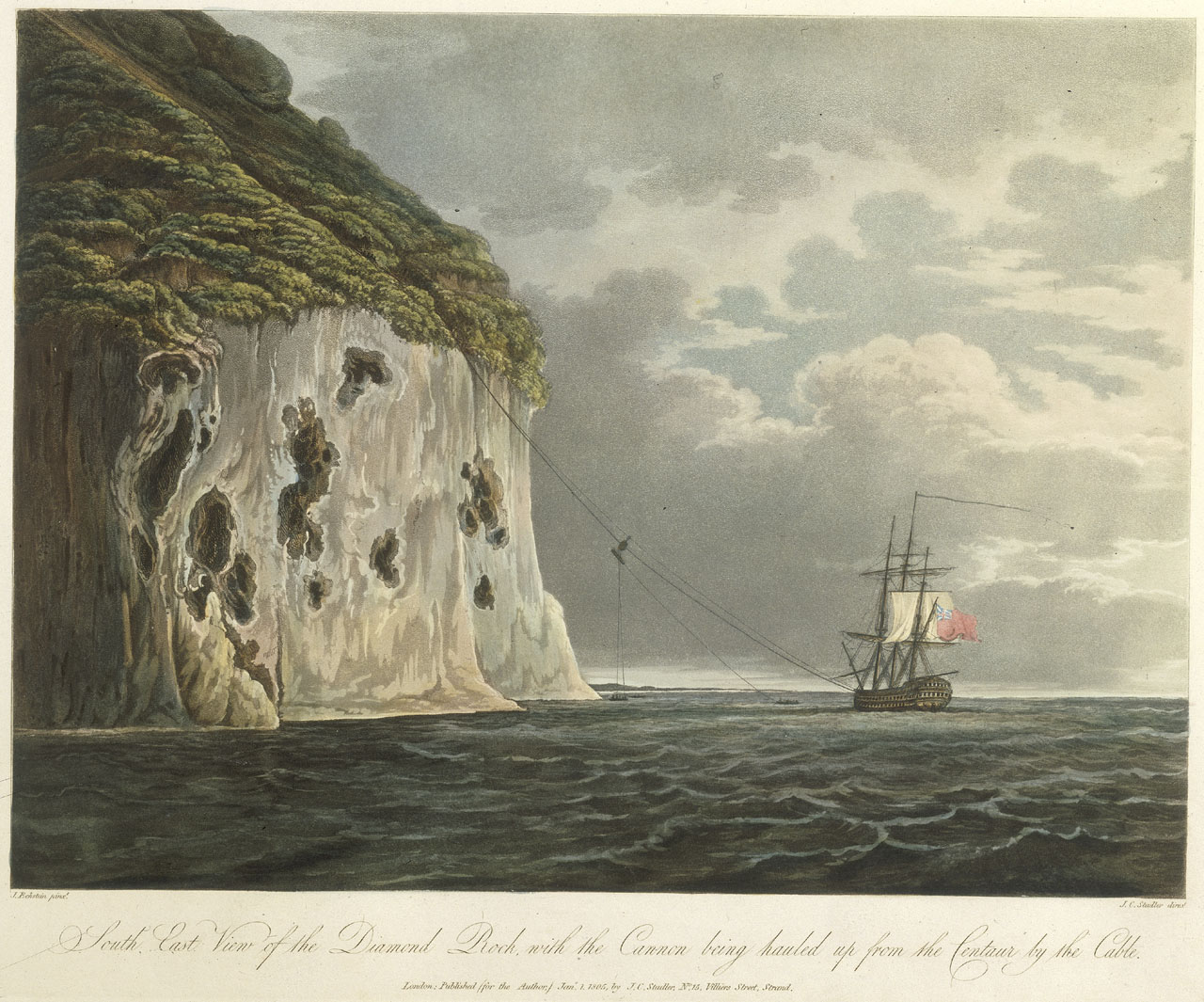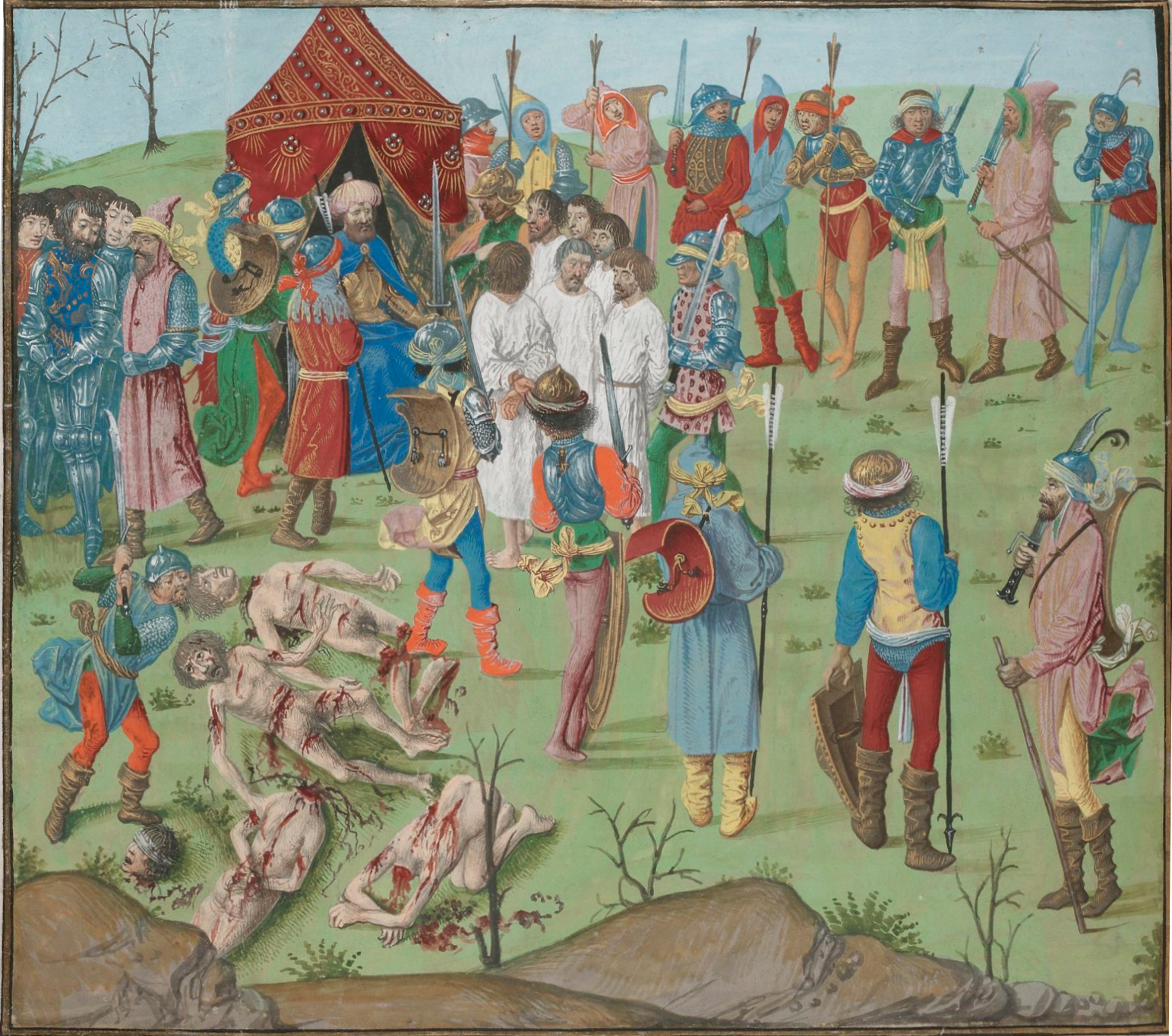|
Treaty Of Paris (1802)
The Treaty of Paris was signed on 25 June 1802 between the First French Republic, then under First Consul Napoleon Bonaparte, and the Ottoman Empire, then ruled by Sultan Selim III. It was the final form of a preliminary treaty signed at Paris on 9 October 1801 that brought to an end the French campaign in Egypt and Syria and restored Franco-Ottoman relations to their ''status quo ante bellum''. In the treaty the Ottoman Empire also assented to the Treaty of Amiens (25 March 1802), a peace treaty between France and the United Kingdom, which had followed the surrender of French troops in Egypt to the British at the Capitulation of Alexandria. Relations between the Ottoman Empire and France had been strained with the French acquisition of the Ionian Islands in 1797, and the consequent anti-Ottoman propaganda disseminated in the Balkans by French agents. When the French invaded Egypt, the Ottomans declared war (9 September 1798) and subsequently signed a treaty of alliance with Russi ... [...More Info...] [...Related Items...] OR: [Wikipedia] [Google] [Baidu] |
Peace Treaty
A peace treaty is an agreement between two or more hostile parties, usually countries or governments, which formally ends a state of war between the parties. It is different from an armistice, which is an agreement to stop hostilities; a surrender, in which an army agrees to give up arms; or a ceasefire or truce, in which the parties may agree to temporarily or permanently stop fighting. The art of negotiating a peace treaty in the modern era has been referred to by legal scholar Christine Bell as the , with a peace treaty potentially contributing to the legal framework governing the post conflict period, or . Elements of treaties The content of a treaty usually depends on the nature of the conflict being concluded. In the case of large conflicts between numerous parties, international treaty covering all issues or separate treaties signed between each party. There are many possible issues that may be included in a peace treaty such as the following: * Formal designation of ... [...More Info...] [...Related Items...] OR: [Wikipedia] [Google] [Baidu] |
Second Coalition
The War of the Second Coalition (1798/9 – 1801/2, depending on periodisation) was the second war on revolutionary France by most of the European monarchies, led by Britain, Austria and Russia, and including the Ottoman Empire, Portugal, Naples and various German monarchies. Prussia did not join this coalition, and Spain supported France. The overall goal of Britain and Russia was to contain the expansion of the French Republic and restore the monarchy in France, whereas Austria, still weakened and in deep financial debt from the War of the First Coalition, primarily sought to recover its position and come out of the war stronger than it entered. Due in important part to this difference in strategy among the three major allied powers, the Second Coalition failed to overthrow the revolutionary regime, and French territorial gains since 1793 were confirmed. In the Franco–Austrian Treaty of Lunéville in February 1801, France held all its previous gains and obtained new land ... [...More Info...] [...Related Items...] OR: [Wikipedia] [Google] [Baidu] |
1802 In The Ottoman Empire
Eighteen or 18 may refer to: * 18 (number), the natural number following 17 and preceding 19 * one of the years 18 BC, AD 18, 1918, 2018 Film, television and entertainment * ''18'' (film), a 1993 Taiwanese experimental film based on the short story ''God's Dice'' * ''Eighteen'' (film), a 2005 Canadian dramatic feature film * 18 (British Board of Film Classification), a film rating in the United Kingdom, also used in Ireland by the Irish Film Classification Office * 18 (''Dragon Ball''), a character in the ''Dragon Ball'' franchise * "Eighteen", a 2006 episode of the animated television series ''12 oz. Mouse'' Music Albums * ''18'' (Moby album), 2002 * ''18'' (Nana Kitade album), 2005 * '' 18...'', 2009 debut album by G.E.M. Songs * "18" (5 Seconds of Summer song), from their 2014 eponymous debut album * "18" (One Direction song), from their 2014 studio album ''Four'' * "18", by Anarbor from their 2013 studio album ''Burnout'' * "I'm Eighteen", by Alice Cooper commonly re ... [...More Info...] [...Related Items...] OR: [Wikipedia] [Google] [Baidu] |
1802 Treaties
Eighteen or 18 may refer to: * 18 (number), the natural number following 17 and preceding 19 * one of the years 18 BC, AD 18, 1918, 2018 Film, television and entertainment * ''18'' (film), a 1993 Taiwanese experimental film based on the short story ''God's Dice'' * ''Eighteen'' (film), a 2005 Canadian dramatic feature film * 18 (British Board of Film Classification), a film rating in the United Kingdom, also used in Ireland by the Irish Film Classification Office * 18 (''Dragon Ball''), a character in the ''Dragon Ball'' franchise * "Eighteen", a 2006 episode of the animated television series '' 12 oz. Mouse'' Music Albums * ''18'' (Moby album), 2002 * ''18'' (Nana Kitade album), 2005 * '' 18...'', 2009 debut album by G.E.M. Songs * "18" (5 Seconds of Summer song), from their 2014 eponymous debut album * "18" (One Direction song), from their 2014 studio album ''Four'' * "18", by Anarbor from their 2013 studio album '' Burnout'' * "I'm Eighteen", by Alice Cooper common ... [...More Info...] [...Related Items...] OR: [Wikipedia] [Google] [Baidu] |
Treaties Of The French First Republic
A treaty is a formal, legally binding written agreement between actors in international law. It is usually made by and between sovereign states, but can include international organizations, individuals, business entities, and other legal persons. A treaty may also be known as an international agreement, protocol, covenant, convention, pact, or exchange of letters, among other terms. However, only documents that are legally binding on the parties are considered treaties under international law. Treaties vary on the basis of obligations (the extent to which states are bound to the rules), precision (the extent to which the rules are unambiguous), and delegation (the extent to which third parties have authority to interpret, apply and make rules). Treaties are among the earliest manifestations of international relations, with the first known example being a border agreement between the Sumerian city-states of Lagash and Umma around 3100 BC. International agreements were used in so ... [...More Info...] [...Related Items...] OR: [Wikipedia] [Google] [Baidu] |
Peace Treaties Of France
Peace is a concept of societal friendship and harmony in the absence of hostility and violence. In a social sense, peace is commonly used to mean a lack of conflict (such as war) and freedom from fear of violence between individuals or groups. Throughout history, leaders have used peacemaking and diplomacy to establish a type of behavioral restraint that has resulted in the establishment of regional peace or economic growth through various forms of agreements or peace treaties. Such behavioral restraint has often resulted in the reduced conflict, greater economic interactivity, and consequently substantial prosperity. "Psychological peace" (such as peaceful thinking and emotions) is perhaps less well defined, yet often a necessary precursor to establishing "behavioural peace." Peaceful behaviour sometimes results from a "peaceful inner disposition." Some have expressed the belief that peace can be initiated with a certain quality of inner tranquility that does not depend upo ... [...More Info...] [...Related Items...] OR: [Wikipedia] [Google] [Baidu] |
Peace Treaties Of The Ottoman Empire
Peace is a concept of societal friendship and harmony in the absence of hostility and violence. In a social sense, peace is commonly used to mean a lack of conflict (such as war) and freedom from fear of violence between individuals or groups. Throughout history, leaders have used peacemaking and diplomacy to establish a type of behavioral restraint that has resulted in the establishment of regional peace or economic growth through various forms of agreements or peace treaties. Such behavioral restraint has often resulted in the reduced conflict, greater economic interactivity, and consequently substantial prosperity. "Psychological peace" (such as peaceful thinking and emotions) is perhaps less well defined, yet often a necessary precursor to establishing "behavioural peace." Peaceful behaviour sometimes results from a "peaceful inner disposition." Some have expressed the belief that peace can be initiated with a certain quality of inner tranquility that does not depend upo ... [...More Info...] [...Related Items...] OR: [Wikipedia] [Google] [Baidu] |
Peace Treaties Of The French Revolutionary Wars
Peace is a concept of societal friendship and harmony in the absence of hostility and violence. In a social sense, peace is commonly used to mean a lack of conflict (such as war) and freedom from fear of violence between individuals or groups. Throughout history, leaders have used peacemaking and diplomacy to establish a type of behavioral restraint that has resulted in the establishment of regional peace or economic growth through various forms of agreements or peace treaties. Such behavioral restraint has often resulted in the reduced conflict, greater economic interactivity, and consequently substantial prosperity. "Psychological peace" (such as peaceful thinking and emotions) is perhaps less well defined, yet often a necessary precursor to establishing "behavioural peace." Peaceful behaviour sometimes results from a "peaceful inner disposition." Some have expressed the belief that peace can be initiated with a certain quality of inner tranquility that does not depend upo ... [...More Info...] [...Related Items...] OR: [Wikipedia] [Google] [Baidu] |
Battle Of Diamond Rock
The Battle of Diamond Rock took place between 31 May and 2 June 1805 during the Napoleonic Wars. It was an attempt by Franco-Spanish force dispatched under Captain Julien Cosmao to retake Diamond Rock, at the entrance to the bay leading to Fort-de-France, from the British forces that had occupied it over a year before. The French in Martinique had been unable to oust the defenders from the strategically important rock, and the British garrison was able to control access to Fort-de-France Bay, firing on ships attempting to enter it with guns they had placed on the cliffs. The arrival of a large combined Franco-Spanish fleet in May changed the strategic situation. The French commander, Pierre de Villeneuve, had vague orders to attack British possessions in the Caribbean, but instead waited at Martinique for clearer instructions. He was finally persuaded to authorise an assault on the British position, and a Franco-Spanish flotilla was dispatched to storm the rock. Already short o ... [...More Info...] [...Related Items...] OR: [Wikipedia] [Google] [Baidu] |
France–Turkey Relations
French–Turkish relations (; ) cover a long period from the 16th century to the present, starting with the alliance established between Francis I and Suleiman the Magnificent. Relations remained essentially friendly during a period of nearly three centuries, with the resumption of intense contacts from the reign of Louis XIV. Relations became more complex with the French campaign in Egypt and Syria by Napoleon I in 1798, and the dawn of the modern era. History Battle of Nicopolis In 1396, Jean Le Maingre, the Marshal of France, took part in the joint French–Hungarian crusade against the Ottoman Turks, which suffered a heavy defeat on September 28 at the Battle of Nicopolis. He was taken hostage by the Ottoman sultan Bayezid I, but, unlike many of his companions, escaped execution and was eventually ransomed. From France, it was said about 5,000 knights and squires joined, and were accompanied by 6,000 archers and foot soldiers drawn from the best volunteer and mercenary ... [...More Info...] [...Related Items...] OR: [Wikipedia] [Google] [Baidu] |
Mehmed Said Galip Pasha
Mehmed Said Galip Pasha (Modern Turkish: ''Mehmet Sait Galip Paşa''; 1763/1764, Constantinople (Istanbul) – 1829, Balıkesir) was an Ottoman statesman. He was Grand Vizier of the Ottoman Empire from 13 December 1823 to 14 September 1824. He was a signatory of the Treaty of Paris (1802) with France, ending the French campaign in Egypt and Syria The French campaign in Egypt and Syria (1798–1801) was Napoleon Bonaparte's campaign in the Ottoman territories of Egypt and Syria, proclaimed to defend French trade interests, to establish scientific enterprise in the region. It was the .... References 1829 deaths 19th-century Grand Viziers of the Ottoman Empire Ottoman people of the Greek War of Independence 1760s births Reis ül-Küttab {{Ottoman-bio-stub ... [...More Info...] [...Related Items...] OR: [Wikipedia] [Google] [Baidu] |
Gregorian Calendar
The Gregorian calendar is the calendar used in most parts of the world. It was introduced in October 1582 by Pope Gregory XIII as a modification of, and replacement for, the Julian calendar. The principal change was to space leap years differently so as to make the average calendar year 365.2425 days long, more closely approximating the 365.2422-day 'tropical' or 'solar' year that is determined by the Earth's revolution around the Sun. The rule for leap years is: There were two reasons to establish the Gregorian calendar. First, the Julian calendar assumed incorrectly that the average solar year is exactly 365.25 days long, an overestimate of a little under one day per century, and thus has a leap year every four years without exception. The Gregorian reform shortened the average (calendar) year by 0.0075 days to stop the drift of the calendar with respect to the equinoxes.See Wikisource English translation of the (Latin) 1582 papal bull '' Inter gravissimas''. Second, ... [...More Info...] [...Related Items...] OR: [Wikipedia] [Google] [Baidu] |



.jpg)


